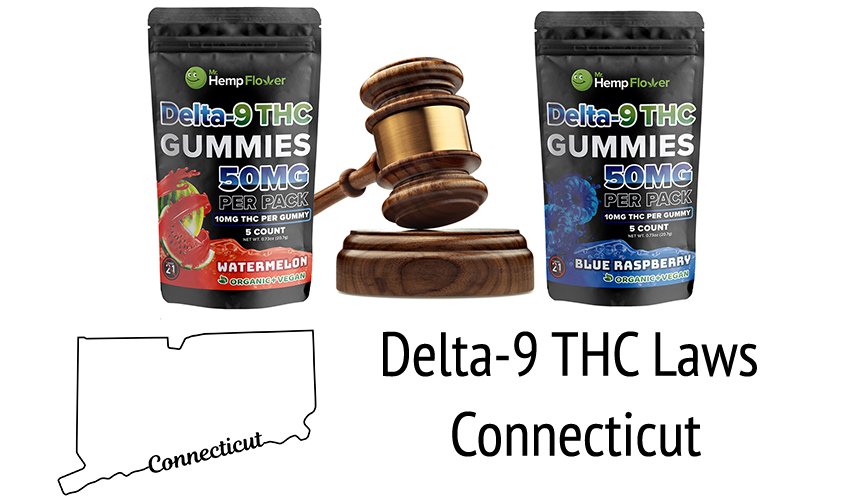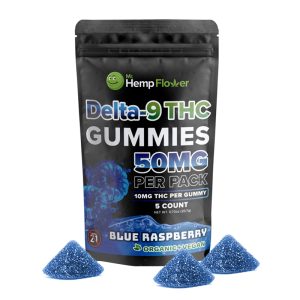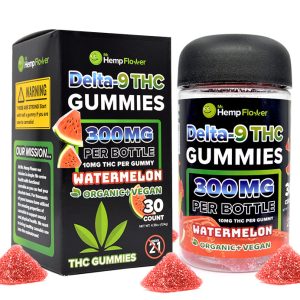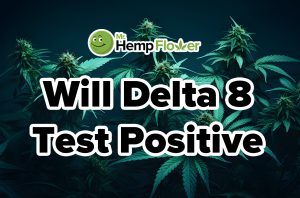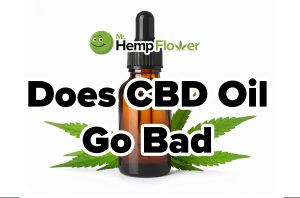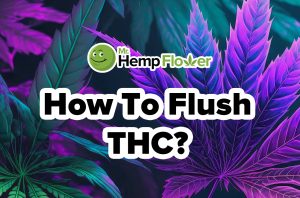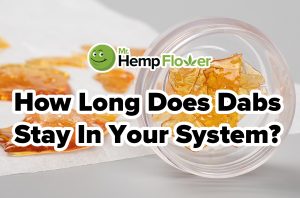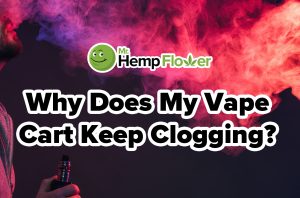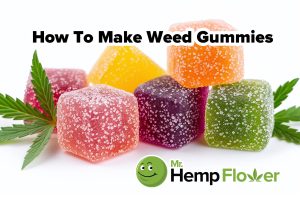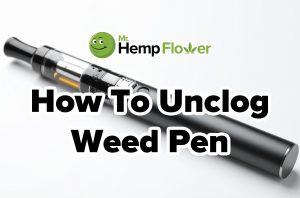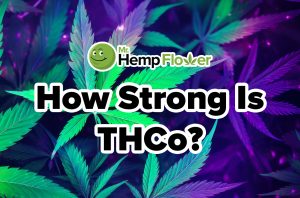While delta 8 THC products are restricted in Connecticut, you can freely buy hemp-derived products with less than 0.3% THC, including delta 9 gummies.
Let’s look at the hemp laws and regulations in Connecticut and where to buy the best delta 9 gummies.
Last Update: January 20, 2026
Summary
- Hemp-derived delta 9 THC gummies are legal in Connecticut.
- The state doesn’t explicitly ban or restrict the sale, use and possession of these products as long as their THC concentration doesn’t exceed 0.3%.
- You can order legal hemp-derived delta 9 gummies online or buy in a local dispensary without restrictions.
- Connecticut legalized hemp under SB 893, passed in 2019. The bill authorized the manufacture, distribution, and sale of hemp-derived CBD products.
- Cannabis is legal in Connecticut for medical and recreational purposes.
- Mr. Hemp Flower offers premium delta 9 gummies compliant with the 2018 Farm Bill that you can buy in Connecticut.
Where to Buy Hemp-Derived Delta 9 Gummies in Connecticut?
The best place to buy delta 9 gummies with less than 0.3% THC in Connecticut is online.
Our Delta 9 THC Gummies contain delta 9, cannabidiol (CBD) and minor but important cannabinoids like CBG, CBN, CBC, fragrant terpenes, and flavonoids.
Made with organic ingredients, these gummies are the most effective hemp product and will definitely pack a punch. They are tested by a certified lab and made with hemp extract sourced from organically grown hemp from local farmers in North Carolina and Oregon.
Since starting our brand, we’ve advocated for the power and medicinal potential of whole-plant hemp extracts. Our products are designed to help you reap the benefits of the full spectrum hemp profile.
Are Delta 9 THC Gummies Legal in Connecticut?
Yes, hemp-derived delta 9 gummies are legal in Connecticut if the total amount of THC doesn’t exceed 0.3% by dry weight.
Under state law in, for a hemp product to be legal, it must contain less than 0.3 percent THC (of any type) by dry weight. This includes delta 8, delta 10, and delta 9.
Effective July 1, 2021, Senate Bill 1201 established a cannabis marketplace for recreational purposes. Under the bill, any product with more than 0.3 percent THC is considered marijuana and can only be sold by licensed adult-use or medical marijuana dispensaries.
The change in the law ensures proper regulations of hemp products that contain any type of THC over 0.3 percent by weight.
Connecticut Hemp Laws
In 2019, Connecticut passed Senate Bill 893, which legalized hemp production and hemp-derived CBD products. This law defines hemp products as products with a THC concentration of not more than 0.3 percent.
In Connecticut, hemp-derived cannabidiol products can be sold as food and are not considered controlled substances or adulterated products. Product labeling cannot make health claims or list medicinal benefits and effects. You can legally buy all forms of hemp products in this state, including edibles, drinks, smokables, vapes, topicals, etc.
Medical marijuana has been legal in this state since 2012. Patients with qualifying medical conditions can buy cannabinoid products derived from marijuana. Since July 1, adult-use marijuana is also legal in this state.
Hemp Compliant Delta 9 THC and Federal Law
The 2018 Farm Bill legalized the growth, manufacture, and sale of hemp and hemp products with less than 0.3% delta 9 THC.
Federal law removed hemp from the Controlled Substances Act
The 2018 Farm Bill removed hemp from the list of controlled substances and placed a cap on the amount of Δ9-THC that hemp plants can contain. The main idea behind the legalization of this plant on a federal scale was to allow users to reap the benefits of low-THC, non-intoxicating cannabis. Here’s how federal law defines hemp:
“The term ‘hemp’ means the plant Cannabis sativa L. and any part of that plant, including the seeds thereof and all derivatives, extracts, cannabinoids, isomers, acids, salts, and salts of isomers, whether growing or not, with a delta-9-tetrahydrocannabinol concentration of not more than 0.3 percent on a dry weight basis [1].”
During the legalization process, legislators removed “hemp” and “THC in hemp” from the Controlled Substances Act and the definition of marijuana — which is still federally illegal.
Now, the appearance of high-THC hemp-derived products, like delta 9 gummies, raised questions around the legality of intoxicating items made from hemp. This prompted states to legalize high-THC hemp-derived items as recreational or medicinal cannabis.
Yet, these products remain fully legal under federal law as long as their delta 9 THC levels don’t exceed 0.3 percent. Due to CBD being an approved drug for epilepsy, the Food and Drug Administration hasn’t approved the use of hemp-derived CBD in consumable products. However, it tolerates its use as long as product labeling doesn’t contain any health or medical claims.
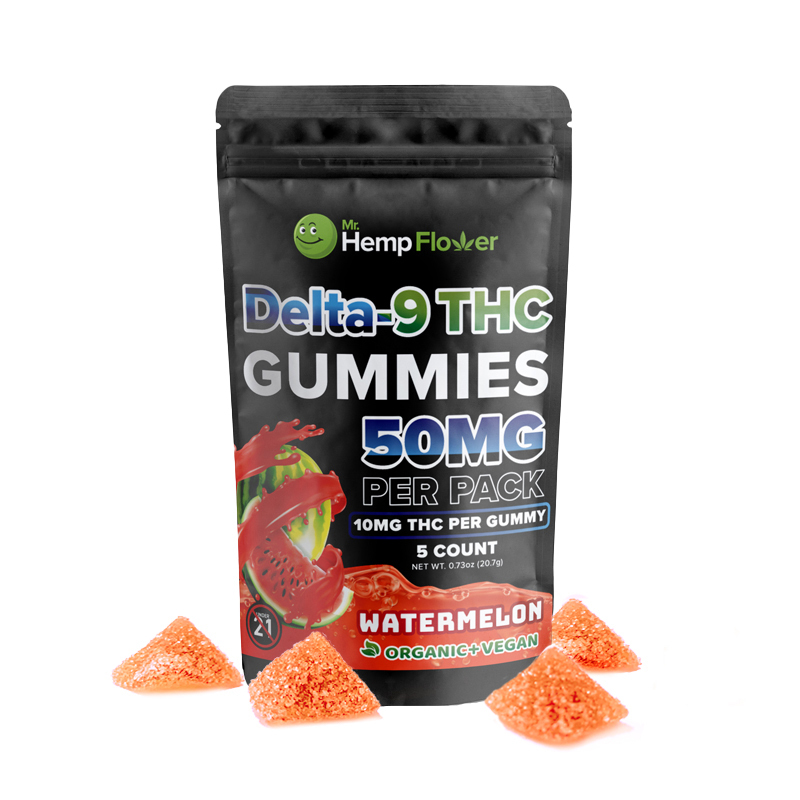
Be Sure to Check Out:
Delta-9 THC FAQ
Is Delta-9 legal in all 50 states?
If derived from hemp and infused in products in a concentration of less than 0.3 percent, delta 9 is legal in most states. That said, some states only allow the production and sale of THC-free hemp products.
What is stronger, Delta-9 or Delta-8?
Studies show that delta 9 is more potent, stimulating, and intoxicating than delta 8, which is milder.
Will Delta-9 get you high?
Yes, delta 9 will get you high. Though this molecule is not the most intoxicating in cannabis, it’s still pretty potent and stimulating.
Does hemp have Delta-9?
It does. Hemp contains less than 0.3 percent delta 9, set by the Farm Bill of 2018.
Read our legal disclaimer HERE. While we try to stay as up to date as possible on all state laws, you should do your own due diligence and work with a legal professional to ensure you are operating legally in your state or territory at all times.

